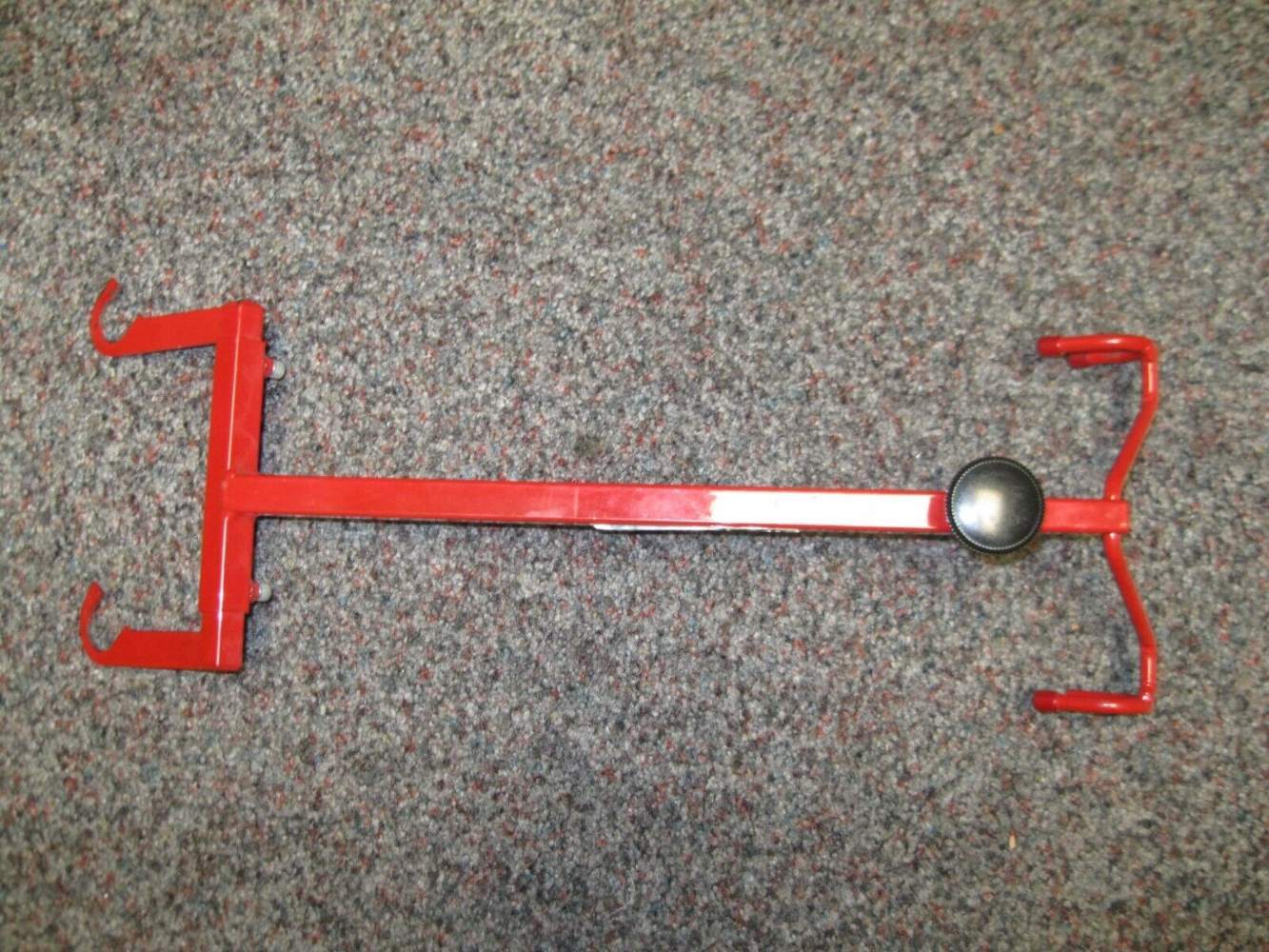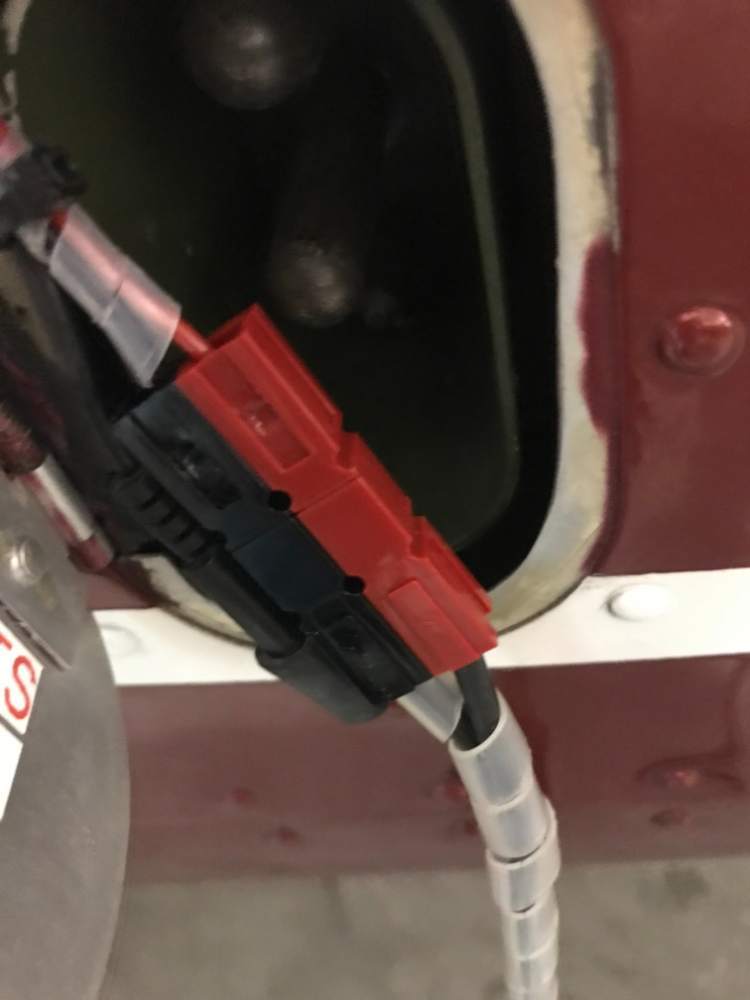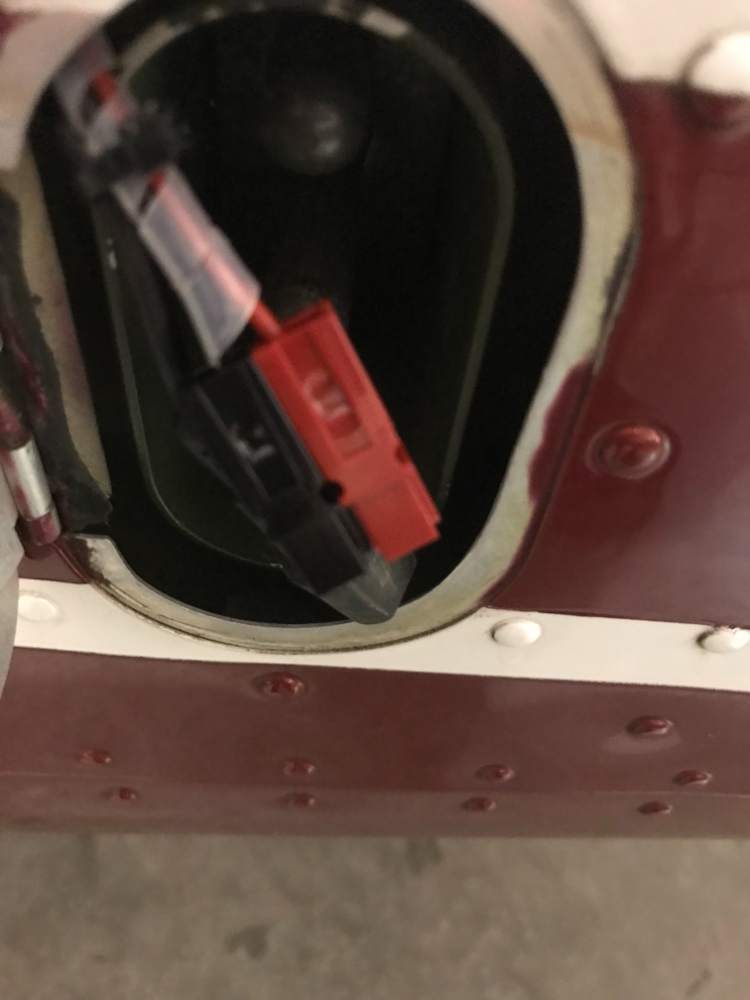-
Posts
1,846 -
Joined
-
Last visited
-
Days Won
3
Content Type
Profiles
Forums
Blogs
Gallery
Downloads
Media Demo
Events
Everything posted by M20F-1968
-
I have the fixed center cowl flap which hides the horizontal tube where the pointer and turning limits are shown. This is my solution when I am leaving the plane for any significant time. I also use the York Gust Lock which locks the yoke and rudder pedals. Towing is not an option with these in place. I have a Johnson Bar plane. I have never tried to put the gear up with the plane of jacks to see what would happen. I make it a point to walk around the plane every time it is parked anywhere away from home. I suspect that if I tried to put the gear up with the nose gear lock on, I would know it. But, assumptions never mix with aviation. John Breda
-
I would be careful with this. Bare aluminum is not a good idea. Corrosion sets in rather rapidly on bare aluminum and progresses from there. Cracks in paint and bondo, allow water to get in and accelerates the corrosion process. You will need to remove the paint and Bondo down to bare metal and good paint, clean the underlying metal well and use allodine and paint or an etching primer just to protect it. This should be done particularly in light of the fact that you are flying it and it will be exposed to weather and the element. Don't concern yourself about what it looks like. You need to protect the metal. It may turn out that there is sufficient damage to warrant changing the involved skins. Don't be surprised that if the work is sufficiently substandard given the history, changing the skins would be a good choice. John Breda
-
Does it need the electric gear to do that, or can the Johnson bar gear be configured to do the same? John Breda
-
I concur. That is why I belive the value of this system is identifying the last 2 feet of altitude. John Breda
-
I have both the P2 system and the LHS. Both perform different functions but work well together. The "Check Gear" voice of the LHS does not look at the position of the gear as the P2 does and is just an additional reminder to think about the gear and confirm in your mind that the plane and you are ready to land. I installed the P2 first, and the LHS later. The last 1-2 feet of the LHS callouts are the most helpful. It is very difficult to determine when your wheels are 1 foot above the ground. Having that information, especially at night is well worth the cost of the LHS. John Breda
-

Mooney Ovation Interior Refurbish
M20F-1968 replied to William Munney's topic in Modern Mooney Discussion
There are lots of capable people who can do high-quality upholstery work, usually on automobiles, and some on aircraft. The only difference is the materials used. I do not believe that one needs any special certification to sew. You do need to be able to produce flame certifications. Leather can be bought inexpensively provided you look and do your homework. I bought the leather I used for my plane from an aircraft salvage yard that had new, unused hides from a company that had been doing jet interiors. You can get your leather hides flame tested for not a lot of money. Eurostretch is a good cloth to cover the headliner. It used to be made in tweed colors, but now just a single color. Comes from England. It does have some stretch. Mooney said that the lower side panels could not be covered in leather. They are wrong. My complete interior is covered in leather. John Breda -

What’s the Best Option for Upgrading Cabin Insulation?
M20F-1968 replied to RoundTwo's topic in General Mooney Talk
I used the SoundEx product throughout the cabin, including the roof. Do not glue it in. It is not necessary to do so. You then have access to the skins for inspection later, running wires, or general maintenance. John Breda -

How to Attach Battery Minder plane simply
M20F-1968 replied to M20F-1968's topic in General Mooney Talk
What is the mathematical calculation used to adjust the time, ending discharged amount, the resulting voltage used to determine the condition of the battery? I ask this because 12V battery capacity testers are available which have a lower load maximum which also reflects in a lower cost. John Breda -

How to Attach Battery Minder plane simply
M20F-1968 replied to M20F-1968's topic in General Mooney Talk
Is there an affordable battery capacity tester? At 12 volts, what should the load be to drain the battery how far? The more the load, the more the capacity tester costs. Is a 150 amp load for 1 hour equal to testing with a 50 amp load for three hours? John Breda -
I am addressing the STC's held by M20Turbos. The developer of the STC is deceased, his wife did not want it. It is not being used and the company is no longer an entity. John Breda
-
There have been some posts about this. I recently found some electrical connectors that fit inside the external power connector box easily. A fused harness can be made from Milspec wire, to come from the battery, through the space between the external power supply box and the aircraft skin, and be fitted with these connectors which are small, rated for the voltage/amperage needed, and allow easy closure of the connector-springed door. The maker of the connector is PowerWerx and can be found at https://powerwerx.com/ The connectors come in red and black and can be ordered pre-bonded together so it is just one click to connect to the airplane. The same connector is placed on the wire from the Battery Minder. They make an extension wire that has O ring connectors on one end and the automotive connector they use on the other end. I used that cable to connect between the MIL Spec cable installed in the plane, to the Battery Minder itself. That way you can leave the actual cable connected to the Barrery Minder unaltered.
-
Here is the same post with a JPEG: There have been some posts regarding seat pins not fully engaging in the seat rails and causing unexpected seat release. I am using Ovation seats in my F model. Yes, they do fit, however, I replaced the seat pins (which are quite expensive to purchase) due to their being bent. I also bought these seat rail stops, originally designed for Cessna seat rails, but will fit a Mooney if you enlarge the groove opening as the upright part of the Cessna seat rail is thinner than part of the Mooney seat rail. They work quite well and do hold. Also, at least with the Ovation seats, you can tell by placing your finger where the release bar approaches the corner of the seat. If the pin is properly in place, the space between the seat release and the seat is very small, almost touching. Test this on both sides.
- 1 reply
-
- 2
-

-

-
There have been some posts regarding seat pins not fully engaging in the seat rails and causing unexpected seat release. I am using Ovation seats in my F model. Yes, they do fit, however I replaced the seat pins (which are quite expensive to purchase) due to their being bent. I also bought these seat rail stops, originally designed for Cessna seat rails, but will fit a Mooney if you enlarge the groove opening as the upright part of the Cessna seat rail is thinner than part of the Mooney seat rail. They work quite well and do hold. Also, at least with the Ovation seats, you can tell by placing your finger where the release bar approaches the corner of the seat. If the pin is properly in place, the space between the seat release and the seat is very small, almost touching. Test this on both sides. I uploaded the pics as PDF's so I think you will have to click on them to see them. John BredaIMG_7072 2.pdIMG_7070 2.pdfIMG_7070 2.pdf
-
The seats from other models will fit. I rebuilt a 1968 M20 F with many Ovation parts including all 4 seats and full interior. Take a look at the pictures in my profile. It does take time however. John Breda
-
Could you get that same thing to happen with the M20 Turbos system as it too is essentially an abandoned STC? John Breda
-
Take the airplane to an excellent sheet metal shop. Beegles of Colorado comes to mind. Try to work out the dent with one person pushing from the inside and a second person tapping and working the metal from the outside. Try to get it as close to the correct shape as you can. It will depend on the nature of the dent. For this to work the edges of the dent should not have sharp corners and should be gradual. Find a knowledgeable person to look at it and make an assessment. John Breda
-

IFR “practice” with certificate vs without. Good idea or Bad?
M20F-1968 replied to Schllc's topic in General Mooney Talk
I routinely will follow an ILS or RNAV approach when coming in VFR. It traffic is light at an uncontrolled airport, I will announce my intentions, be sure people know what I am doing, and follow the approach in. If I am doing a traditional VFR pattern, I may also have the approach loaded, or use the VFR version on my G600. There is no reason why a VFR pilot can not do a typical VFR pattern and join the approach and glide slope while under VFR conditions. I will give them a leg up on handling the plane, build a good sight model of a 3-degree glide slope, and give them vertical guidance. You do not need a n IFR license to use the equipment during a VFR flight, as long as you follow VFR rules and expectations. John Breda -

B&C Standby Alternator Field Approval
M20F-1968 replied to Marauder's topic in Avionics/Panel Discussion
It has a pressure piston which pushes it out. John Breda -

B&C Standby Alternator Field Approval
M20F-1968 replied to Marauder's topic in Avionics/Panel Discussion
There is another alternative to provide an indefinite 12 amps/14 Volts at 105 kts indefinitely as long at the unit is turning. It will power basic avionics. I have this unit and configured my panel with two avionics master so the extra load can be shed quickly. See https://www.basicaircraft.com/shop John Breda -
Is the pulley a weak part of the Kelly Aerospace alternator. It would seem that this should not fail. It looks like the Plane Power alternator uses a machined aluminum pulley. Is this part a reason to use a different alternator? John Breda
-
Pictures got rearranged - 1st and 3rd pictures show the broken pulley. I seem to remember the alternator is a Kelley Aerospace alternator, but I may be wrong. John Breda
-
I took the plane out last weekend and was up about 20 minutes before I got a Bus Voltage Low warning on -20 amps, 11.8V. When I got the plane on the ground I took off the top cowling and found that the belt was loose, but not broken, and the alternator pulley failed. I cannot see the alternator part number just yet as it is behind the lower cowling and engine baffling, however, can one purchase and replace just the alternator pulley? If I had a choice, I would prefer it to be steel rather than cast aluminum. You can see the broken pulley in the second and third pictures. Any thoughts or experience in this matter? John Breda
-
The "Agenda" link does not seem to be working. John Breda
-
I have this Whelen LED tail light available. I installed it when I did the rebuild on my aircraft, and shortly thereafter was able to obtain the Orion version with a built-in strobe, so I upgraded. It has sat on the shelf since. I would be willing to sell it for about $150.00. It is in like-new condition. You can reach me here, or at my email: john.breda@gmail.com, or on my cell: (617) 877-0025. John Breda
-
Look like you have a Rajay turbonormalizer installed. What prop are you using? John Breda

copy.jpg.b1d2bbe5f194a4d80a5d4f4f5b18e500.jpg)



